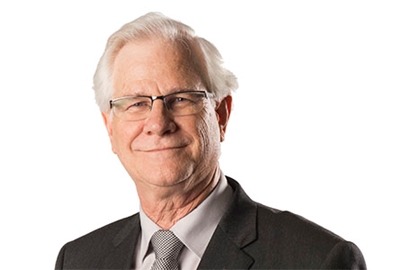Let me tell you a story.
No. Wait a minute. Rather than tell a story, let's talk about stories.
Blogs Mike Jacka, CIA, CPA, CPCU, CLU Oct 28, 2021
No. Wait a minute. Rather than tell a story, let's talk about stories.

I've been going through my old blog posts, and I realized how often I've not only used the phrase "Let me tell you a story," but how often I've started posts with that phrase.
And there's a good reason for this. Nothing is as powerful as story. Nothing is as powerful as the anecdote that makes the point, the memoir that shows how it was done, the reminiscence that exhibits a practice, the account that uses the specific to make a point about the general. The best way to make a point — the best way to persuade the listener — is not by quoting facts and figures, but by coming up with a story that resonates with that listener and provides a touchpoint between the individual's experiences and yours.
Think about presentations you've attended. Now think about the ones that really stood out. Do they stand out because of the specifics contained within the presentation — the facts, figures, data, and evidence? Or do they stand out because the presenter was able to use stories and examples to make the dry dust of the details come to life?
Let's use Agile as an example. I sat through a number of presentations and read a few books trying to get a grip on what was being described. And while all of them laid out the process and concepts well, they didn't click. Then I read a book that did more than just lay out the process; it told the story of how Agile was used in that organization — stories about the process and the successes. And it all came together for me; it came to life in a way that all the other attempts had been unable to do.
Let me give you another example. I've done a lot of work around process mapping and I can go on forever telling you about how it can help build relationships with the client. However, no amount of verbiage I might spill is as forceful as this one anecdote. At Farmers Insurance internal audit, we spent a year completing process mapping projects in every claims office. We started revisiting the offices and, during one of our first visits, a clerk jumped up and, with complete sincerity said, "Oh boy, the auditors are here."
Story is more impactful than the underlying information.
All of the preceding leads to this point. What is true regarding how we are impacted is just as true for any one of our clients. This is a drum I've beaten in the past. But as Todd Rundgren sang, "I just want to bang on the drum all day." And this is a drum well worth beating. In all situations, for all clients, story is more impactful than the details, facts, and figures, no matter how accurate and, to us, compelling those details, facts, and figures may be.
Throughout the audit process, we can discuss every detail, every statistic, every bit of information, and every element of incontrovertible minutiae we know to be important. But we will receive nothing back but stony glances, blank stares, and the subtle sounds of our clients' snores.
You have to know what the story is that you are trying to tell — the story behind, around, and in front of all that information. And then make that story the star. Yes, the underlying value must be there, but the story is the big deal.
Story should permeate the audit process. At the outset of the audit, that story may be about making the department better. During the audit, that story might be about the individuals within each department working together to better understand things. At the end, that story might be about how and why things will change.
And, no, none of those are particularly compelling. But they are a start. For example, at the end of the audit the overall story is about making change. But the more compelling story is told around the client's customer. That story is not about a delayed process, but about how change will help ensure those customers get the value they desire.
Recently, Seth Godin put it this way. "What evidence would you need to change your mind?" If we are honest with ourselves, we know that the answer is not evidence, but a compelling story.
Anecdotes are not evidence. But people treat them that way. (Just look at social media.) And stories are not the truth. But they resonate with people more than the truth. Recognizing and accepting this will help you understand how best to persuade others when change is needed. Because, after all, we are in the persuasion business. And one good story beats out any volume of evidence.
So, let me tell you a story…